Selected Projects
Exploring Everyday Cognitive Tracking Technologies
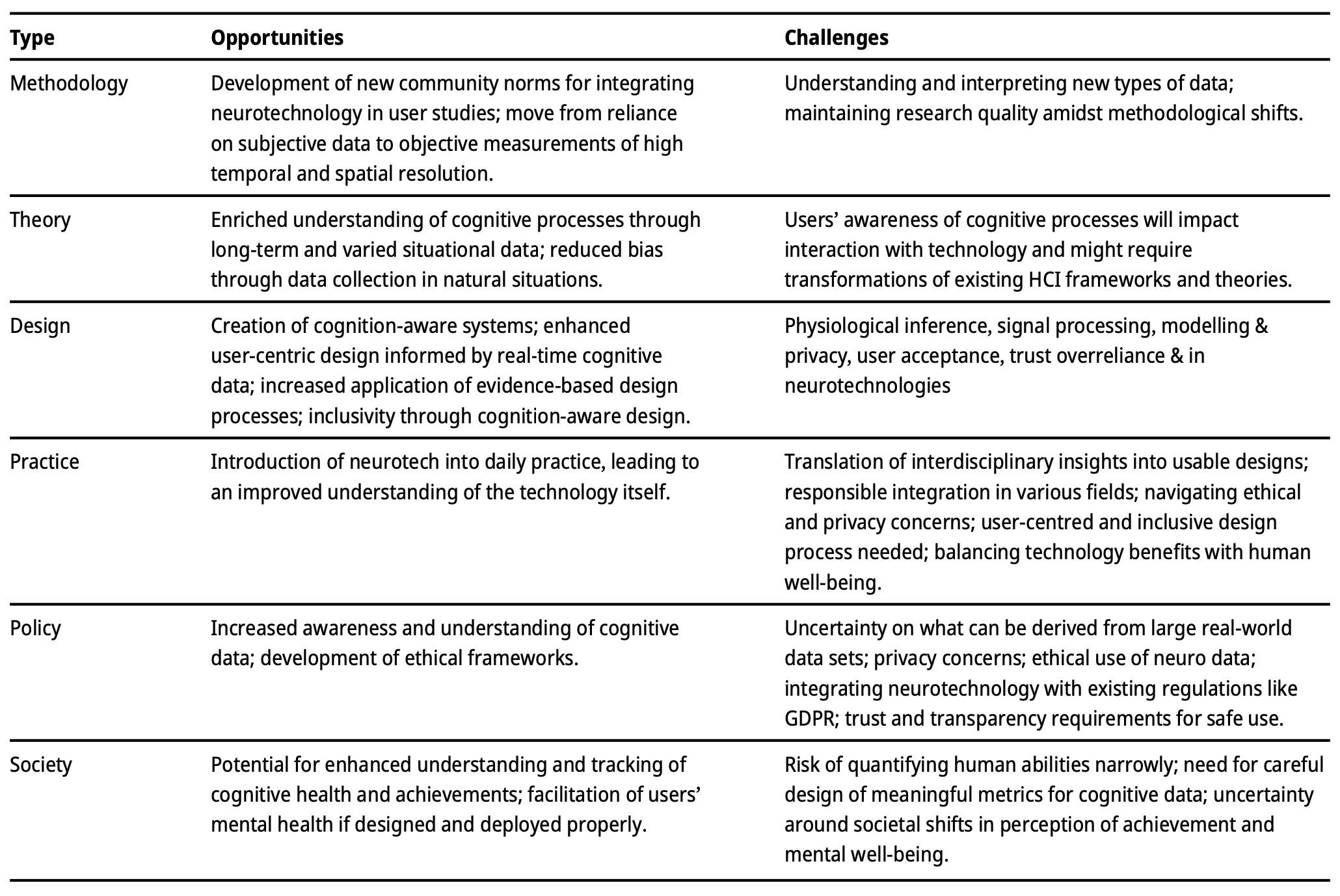
People are increasingly eager to know more about themselves through technology, which has so far focused on physiology. Advances in wearable technology and AI are enabling consumer neurotechnology to measure cognitive activity, presenting new research opportunities in Human-Computer Interaction (HCI). This paper envisions how neurotechnology will transform HCI research and practice, highlighting the importance of ethics, privacy, and trust in its development and utilization.
"Broadening the mind: how emerging neurotechnology is reshaping HCI and interactive system design" by Schneegass, C., Wilson, M. L., Shaban, J., Niess, J., Chiossi, F., Mitrevska, T., & Woźniak, P. W. (2024). i-com, (0).

The CHI'24 Workshop on the Future of Cognitive Personal Informatics aims to explore how cognitive activity tracking can be integrated into personal informatics, addressing both opportunities and challenges. The workshop will gather experts from diverse fields, including design, BCI, physiological data, ethics, and personal informatics, to set the research agenda for this emerging area. Key goals include identifying and elaborating on Key Challenge Scenarios, exploring ethical and design considerations, and fostering interdisciplinary collaboration. The workshop will include pre-arrival tasks, interactive sessions, and post-workshop activities to consolidate ideas and motivate future research. Community engagement will be enhanced through online platforms and an edited book on Cognitive Personal Informatics
The CHI’24 Workshop on the Future of Cognitive Personal Informatics. Wilson, M. L., Shaban, J., Maior, H. A., Schneegass, C., and Cox, A. L. (2024, May). In Extended Abstracts of the CHI Conference on Human Factors in Computing Systems (pp. 1-6).
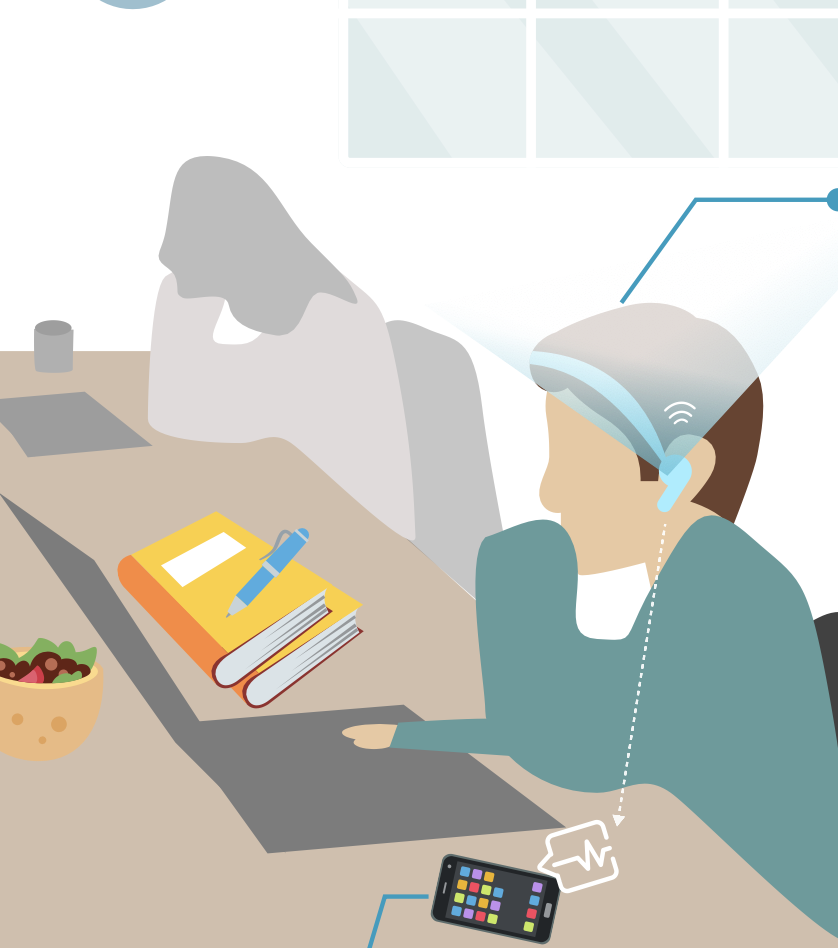
This research explores people's perceptions and thoughts on mental workload (MWL) and aims to promote meaningful MWL self-tracking behavior through a three-phase process: exploratory, validation, and reflection. Key findings reveal several barriers to self-tracking MWL, including difficulties in understanding MWL, mistrust of cognitive data, and challenges in integrating tracking into daily life. The study identifies unique user perceptions of cognitive data compared to physiological metrics, providing insights and recommendations for future design and research in MWL tracking technologies
Master thesis project of Yuwei Chen at IDE, TU Delft, in collaboration with Tilman Dingler, the full text is available here
Physiological Sensing

We explore the development and implementation of a virtual reality (VR) system designed to provide a stress-free and immersive experience for the elderly, particularly those in care homes. By using electromyography (EMG) sensors to monitor stress levels, the system adapts various parameters such as sound volume, brightness, and the number of non-player characters (NPCs) in real-time to mitigate negative emotions and enhance positive ones. The pilot study involving three elderly participants showed promising results, with a significant reduction in stress levels during the adaptive VR sessions compared to the control sessions. The study highlights the potential benefits of emotion-adaptive VR environments in enhancing the well-being and quality of life for elderly individuals.
"An emotion-adaptive VR experience for recreational use in eldercare" by Raja, A., Niforatos, E., & Schneegass, C. (2023). In Proceedings of Mensch und Computer 2023 (pp. 354-358).
Embedding Learning into Real-World Contexts
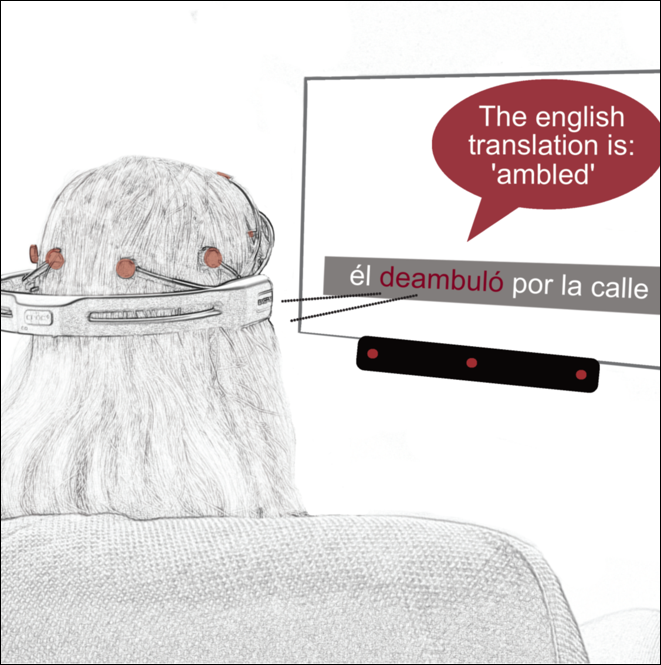
We employed Electroencephalography as an implicit measure to assess language proficiency during foreign language reading and listening. We evaluated our prototype in a lab-based experiment facilitated by translation tasks, questionnaires, and gaze analysis. We show that implicit measurements reveal essential information on users’ internal cognitive processes.
"BrainCoDe: EEG‑based Comprehension Detection during Reading and Listening" by Schneegass, C., Kosch, T., Baumann, A., Rusu, M., Hassib, M., & Hußmann, H. (2020). In Proc. of CHI
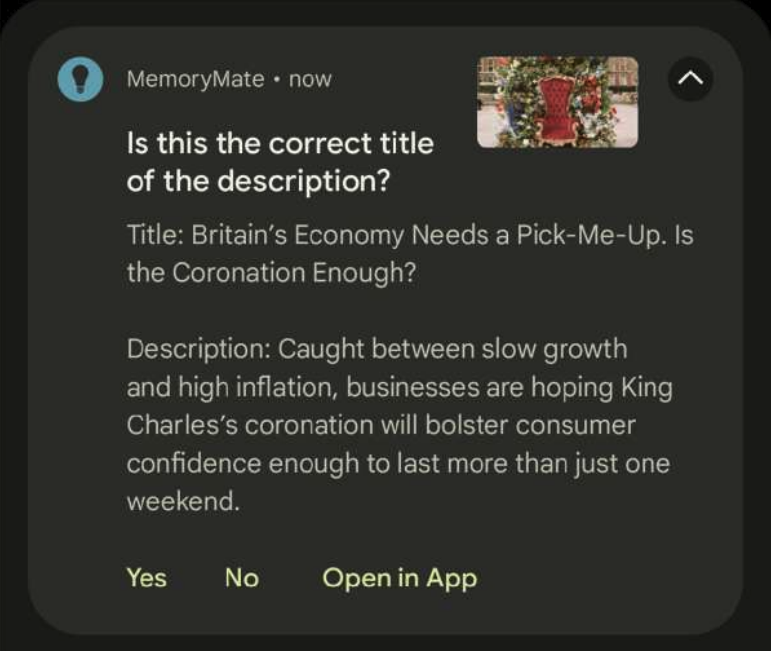
We investigate how interactive notifications can enhance the retention of media content saved on smartphones. Through the design and evaluation of the MemoryMate app, which uses reminders and interactive notifications, the study shows that notifications can significantly improve users' memory and engagement with stored content. The three-week in-the-wild study involving 23 participants found that both passive review and active retrieval practice notifications were effective, with a preference for retrieval tasks. The findings suggest that well-designed notifications can support lifelong learning by maintaining users' interest and improving recall of stored information.
"Learning in the wild–exploring interactive notifications to foster organic retention of everyday media content" by Sigethy, S., Mayer, S., & Schneegass, C. (2024). Behaviour & Information Technology, 1-21.

We conducted an in-depth literature analysis on applications mitigating interruptions when interacting with technology to derive well-evaluated concepts and research gaps. We supplemented our findings with two focus groups to derive UI concepts to support users’ in resuming learning applications after interruptions by their environment.
“Designing Task Resumption Cues for Interruptions in Mobile Learning Scenarios” by Schneegass, C. & Draxler, F. (2020). In Technology-Augmented Perception and Cognition
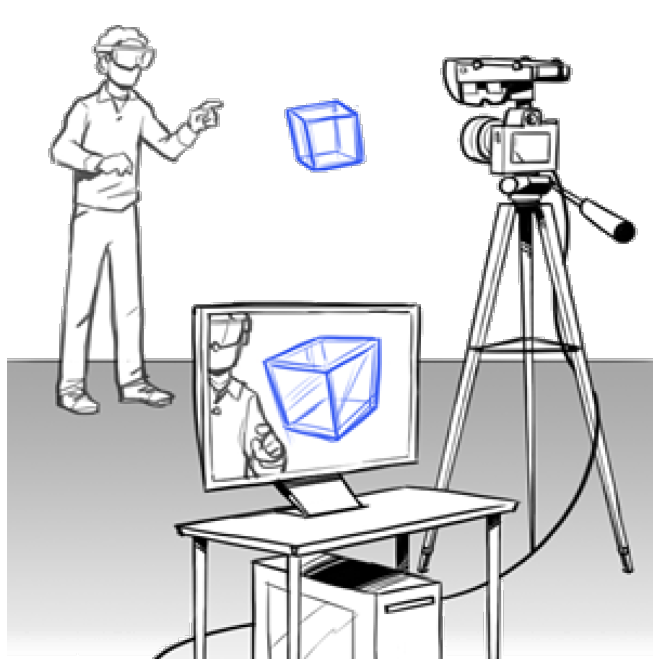
I supervised a student thesis in close collaboration with our industry partner, the Munich-based Institute for Broadcast Technology (IRT), to develop novel concepts for technology use in educational television. We created a smartphone AR prototype to supplement educational videos and evaluated it using an A-B testing approach supplemented with observational data, workload assessments, usability questionnaires, and post-hoc semi-structured interviews.
"TheSpaceStation App: Design and Evaluation of an AR Application for Educational Television." Von der Au, S., Gierig, L., Schneegass, C. & Ludwig, M. (2020). In Proc. of ACM IMX